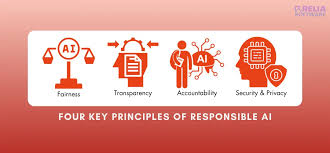Ethical AI Development
Ensuring Fairness and Transparency in Algorithms
Ethical AI Development: Ensuring Fairness and Transparency in Algorithms
The world is rapidly embracing Artificial Intelligence (AI) in various fields. From healthcare to finance, AI promises to revolutionize how we live and work. However, as AI becomes more sophisticated, concerns about its ethical implications are growing. This blog post will explore the critical need for ethical AI development, focusing on two key aspects: ensuring fairness and transparency in algorithms.
Ethical AI Development
Ethical AI development is paramount to ensure that AI systems are used responsibly and benefit society. This involves considering the broader societal impact of AI, including its potential to amplify existing biases, create new forms of inequality, and even threaten human autonomy.
Ensuring Fairness
Fairness in AI algorithms is essential to prevent discriminatory outcomes. AI systems are trained on data, and if this data reflects existing biases, the AI system will learn and perpetuate those biases. For example, an AI system used for loan approvals could unfairly discriminate against certain groups if the training data reflects historical lending practices that were biased.
To ensure fairness, AI developers need to:
- Use diverse and representative datasets for training AI models.
- Develop methods to detect and mitigate bias in algorithms.
- Implement fairness metrics to evaluate the performance of AI systems across different groups.
Transparency in Algorithms
Transparency is another crucial aspect of ethical AI development. Algorithms should be explainable and understandable, allowing users to understand how AI systems arrive at their decisions. This transparency is essential for building trust in AI and ensuring accountability.
Here's how to promote transparency:
- Develop algorithms that are easily interpretable.
- Provide clear documentation and explanations of how algorithms work.
- Enable users to access information about the data used to train AI models.
By focusing on fairness and transparency, we can build AI systems that are responsible, equitable, and trustworthy. This will enable us to harness the full potential of AI while mitigating its potential risks.
Summary
- Ethical AI development is critical to ensure AI systems are used responsibly and benefit society.
- Fairness requires using diverse datasets, detecting and mitigating bias, and implementing fairness metrics.
- Transparency involves developing explainable algorithms, providing clear documentation, and allowing users to access training data information.
- By prioritizing fairness and transparency, we can build trustworthy and beneficial AI systems.
